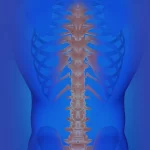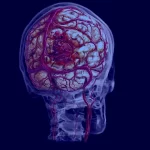
29
Drunkenness and Alcoholic Coma: What You Need to Know
Introduction:
Drunkenness and alcoholic coma are two serious consequences of excessive alcohol consumption. While drunkenness is common, alcoholic coma is a rare but life-threatening condition resulting from prolonged and heavy drinking.
While drunkenness is often associated with social drinking, it can also be a sign of alcohol abuse or addiction. In addition, chronic alcohol abuse can lead to various health problems, including liver damage, heart disease, and mental health disorders.
An alcoholic coma, on the other hand, is a rare but serious condition that can result from prolonged and heavy drinking. It is a medical emergency that requires immediate medical attention. An alcoholic coma occurs when the level of alcohol in the blood reaches a toxic level, causing the brain to shut down.
Causes of Alcoholic Coma:
Drunkenness, also known as intoxication or being drunk, is a state of impaired judgment and physical coordination caused by the consumption of alcohol. The level of drunkenness varies depending on the amount of alcohol consumed, the individual’s body weight, and tolerance to alcohol.
Various factors, including binge drinking, alcohol poisoning, and chronic alcohol abuse, can cause alcoholic coma. It is more common in individuals with a history of alcoholism or who have a high tolerance to alcohol. Other risk factors for alcoholic coma include taking medications that interact with alcohol, such as sedatives or antidepressants, and drinking on an empty stomach.
Symptoms of Drunkenness and Alcoholic Coma:
Some common symptoms of drunkenness include slurred speech, impaired vision, loss of balance, and impaired judgment.
The symptoms of alcoholic coma include unconsciousness, shallow breathing, and a weak pulse.
Treatment of Alcoholic Coma:
The treatment for alcoholic coma involves immediate medical attention. The first step is stabilizing the individual’s vital signs, such as breathing and heart rate. In severe cases, the individual may need to be placed on a ventilator to help them breathe, monitor the blood alcohol level, and provide supportive care, such as fluids and electrolytes, to prevent complications.
Treatment options include counseling, support groups, and medication-assisted treatment.
Prevention of Drunkenness and Alcoholic Coma:
Preventing drunkenness and alcoholic coma involves responsible drinking habits. It is essential to know the limits and avoid binge drinking. Binge drinking is defined as consuming four or more drinks for women and five or more for men in two hours. It is also essential to avoid drinking on an empty stomach and to stay hydrated by drinking water or non-alcoholic beverages.
In Summary:
Drunkenness and alcoholic coma are two serious consequences of excessive alcohol consumption. While drunkenness is a common occurrence, alcoholic coma is a rare but life-threatening condition that requires immediate medical attention. Preventive measures include practicing responsible drinking habits and seeking medical attention for alcohol abuse or addiction. Prevention is critical to avoiding the negative consequences of alcohol consumption.





Comments are closed.